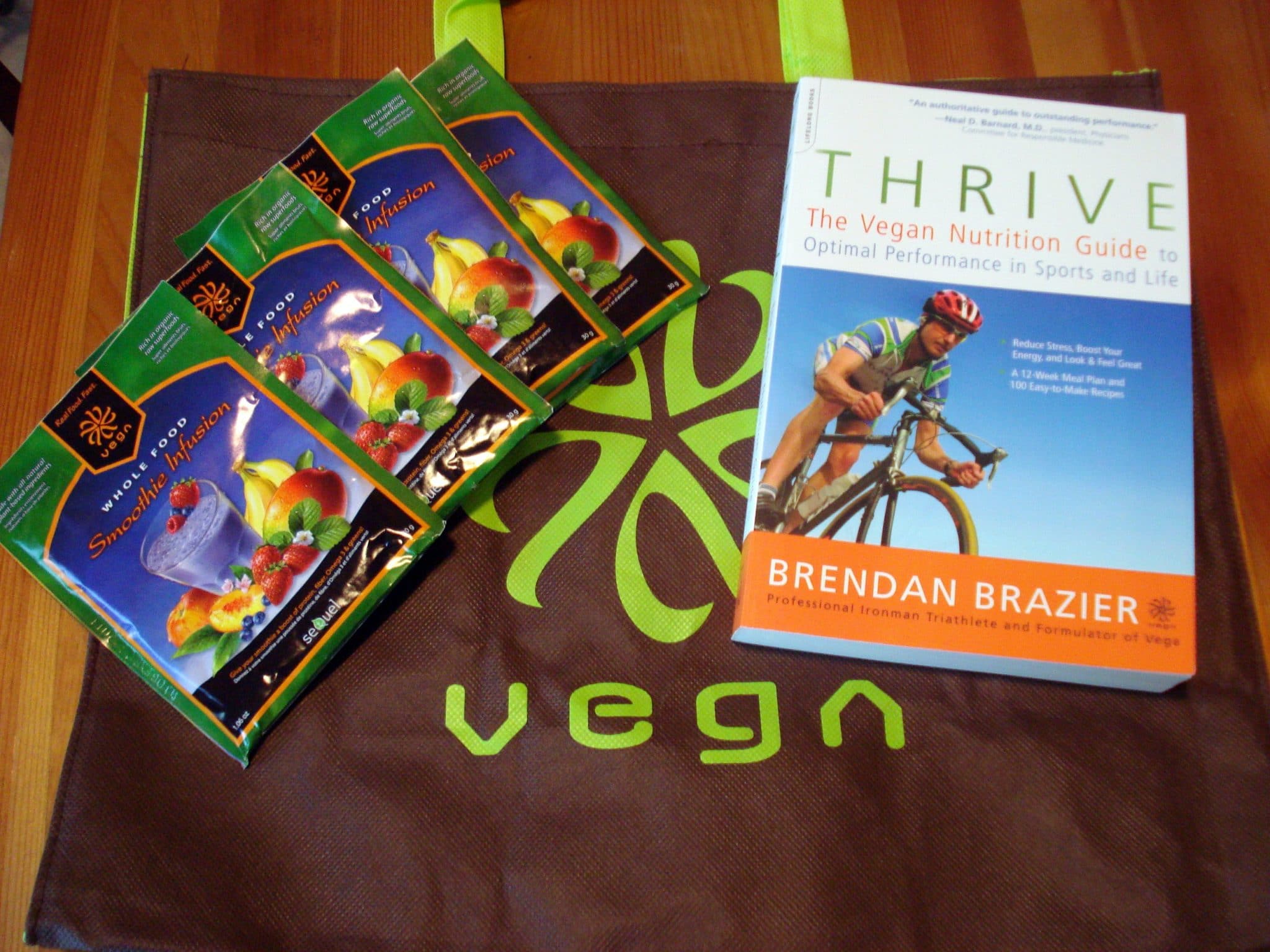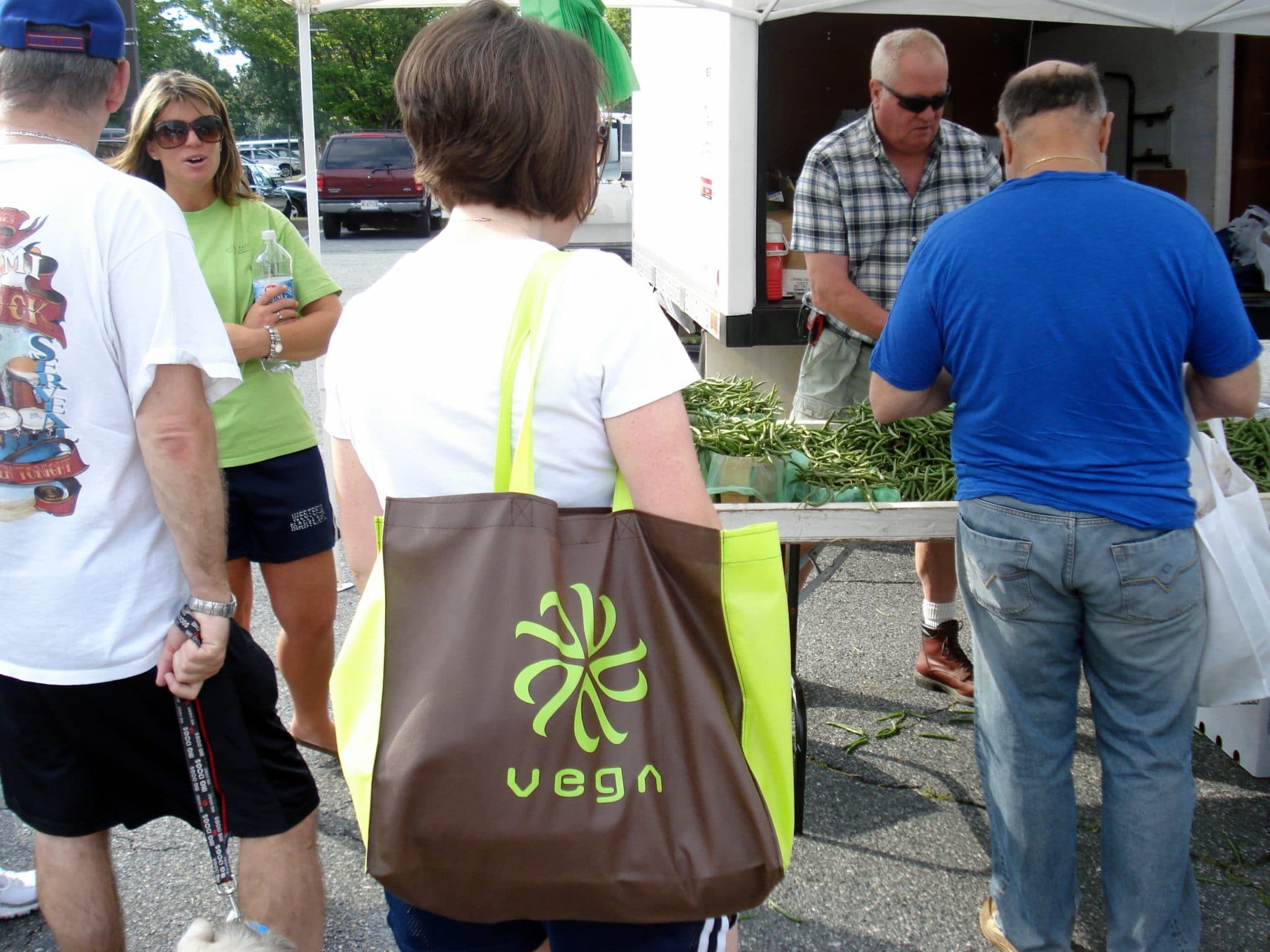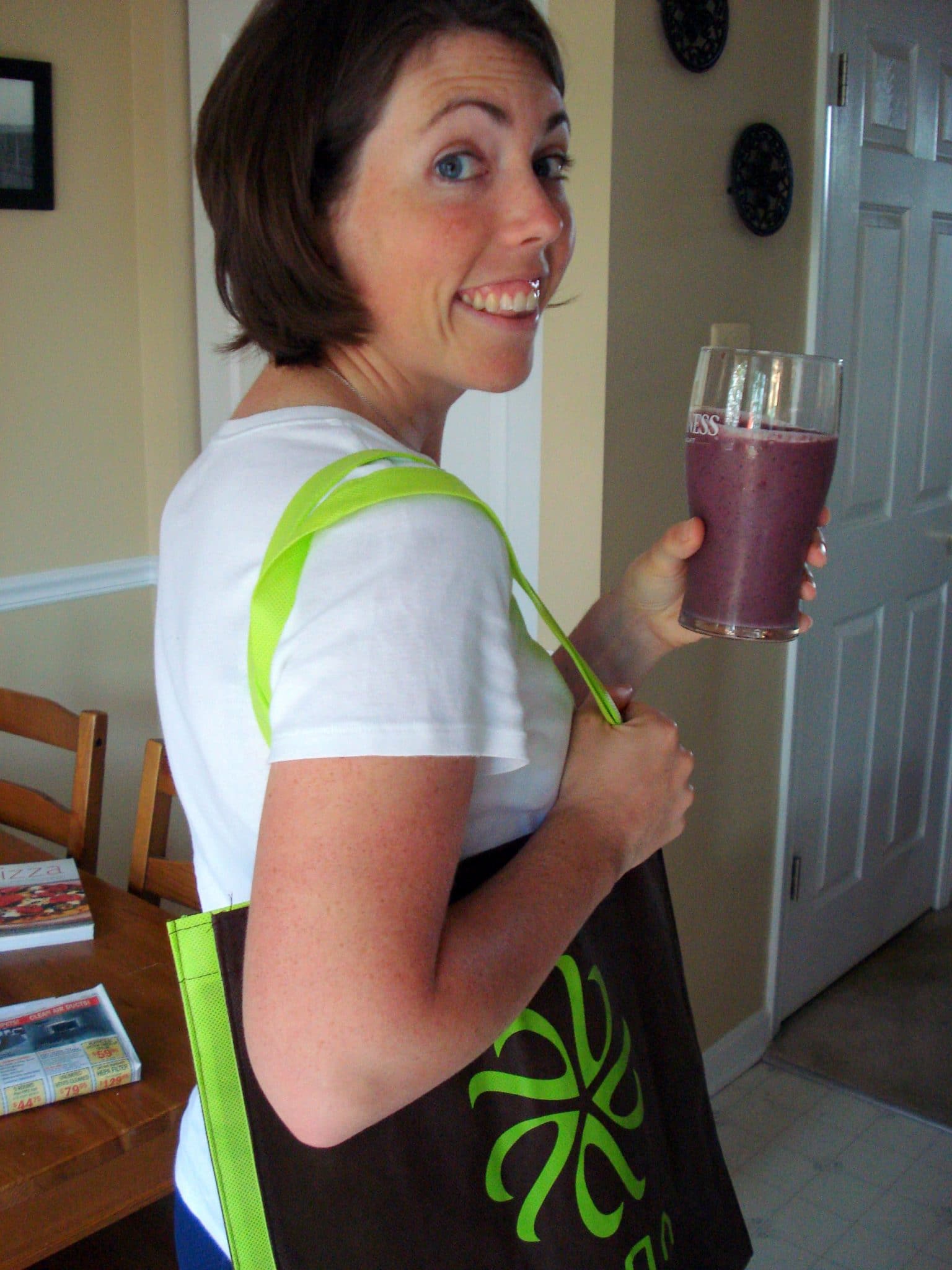Brendan Brazier's Thrive
 The Thrive Diet
The Thrive Diet
As I’ve started to learn more about vegetarian endurance athletes and their diets, I’ve noticed something interesting. First, there is a disproportionate number of them; that is, the percentage of well-known endurance athletes who are vegetarian is much higher than the percentage of vegetarians in the general population. While there could be other factors at work (perhaps being vegetarian makes one’s story more interesting and fame more likely), I tend to count this as evidence that this type of diet offers significant advantages to athletes. What’s more, almost all of the vegetarian athletes are in fact vegan.
Brendan Brazier is one such example. When I found about his book Thrive: The Vegan Nutrition Guide to Optimal Performance in Sports and Life, I knew it was one that I wanted to read, even though I have no intention of becoming a full-blown vegan. My “to-read” list, however, is extremely difficult to tame, and it probably would have been a while before I got around to reading it, had Kelly from Sequel Naturals not sent me a copy to review. Thanks Kelly!
(Update: I wrote this post when I first received Brendan’s products to review. See my later complete review of Thrive, with sample recipes here.)
So far I’ve read only the introduction, but it’s gotten me so excited to read the rest. Here’s what I love about it: the whole premise is that by eating plant-based, raw, alkalizing foods, you drastically reduce the emotional and physical stress that hinders your body’s ability to recover from exercise. According to the intro, this way of eating can reduce stress levels by 40 percent! Ever since learning at Tony Robbins’ seminar that what we eat plays an enormous role in our emotional state, I’ve been really intrigued by the idea of eating foods that reduce acid in the body to maximize energy, reduce stress, and improve mood.
When I think about this stuff, I become completely inspired by this vision of myself taking in only the food that energizes me and totally supports an active lifestyle. Lots of raw food, almost no dairy, little or no alcohol and caffeine. This is truly an ideal, another level of healthy eating to be attained. I also realize, however, that if one thinks of life as a web, then pulling too hard on one string throws the rest out of whack. And I know that if I were to try to become vegan right now or make no-drinking rules, the strings labeled “social life” and “love of cooking” would be made very crooked. As an immediately at-hand example, I’m pretty sure that going to Atlantic City, starting the night with shots, and carousing ’til the second cock (Shakespeare’s words, I swear) only serve to increase the stress on my body, but that kind of fun with friends is something that I’m not yet willing to give up.
Nonetheless, I can’t wait to learn more about the Thrive diet, and the book is absolutely going to be my beach read during my upcoming vacation. My hope is to introduce many more raw and vegan meals into my diet but stay flexible in my approach to eating and cooking. This is sounds dangerously close to moderation, something that doesn’t tend to work for me, so only time will tell if I can make this strategy work.
Vega Smoothie Infusion
Kelly also sent me a few packets of Smoothie Infusion from Brendan’s Vega product line, plus a sweet Vega reusable bag that Erin is totally digging on. Check her out using it at the farmers market this morning!
What’s great about Smoothie Infusion is that in addition to containing greens, organic superfoods, fiber, and Omega-3’s, it’s mainly a protein powder that is made from neither soy nor dairy (whey). I’ve been having some trouble deciding which of these two is less evil as a daily supplement, and Smoothie Infusion eliminates the need to choose one, instead deriving its protein from yellow peas, hemp, and brown rice.
The instructions on the package say to add Smoothie Infusion to your basic smoothie or to make the Basic Vega Smoothie. We tried it both ways. We didn’t really love the Basic Vega Smoothie because it was just too watery compared to what we’re used to. Its only ingredients besides Smoothie Infusion are a banana, frozen blueberries, orange juice, water, and ice, so there’s really nothing to thicken it. Still, the taste was good.
Today we went back to our regular smoothie (which has yogurt, so of course it’s non-vegan), and replaced the protein powder with Smoothie Infusion. This one was a big hit! We both really liked the taste, and it’s nice that with Smoothie Infusion you don’t have to add flaxseed or greens. Here’s Erin again, this time with the smoothie and the bag:
Look forward to lots of updates about Thrive as I read more of it!
Leave a Reply
The Basic Vega Smoothie actually sounds good to me. My issue with smoothies usually is that they are too thick!
Once you’ve read the book, share some insight into alkalizing foods. I keep hearing that word as a good thing but don’t know really what it means. I like knowing why I do something instead of just following rules. I remember once you said adding lemon juice to water and tea helps, but that’s about it.
Unrelated- I totally dig Erin’s haircut! Super cute!
-
Thanks Chris!
I also believe in eating a predominantly alkaline diet… The health benefits are astounding! This book is on my wish list!
You’re right, there are so many great vegan athletes, like Scott Jurek, Dave Scott and Brendan Brazier. I had to laugh once when I googled vegan weight lifters and found weight lifting site after weight lifting site saying you can’t lift weights without meat. Yet Stan Price, a vegan, holds (or held) the world record for bench press. The legendary Jack Lalanne has also been mostly vegetarian throughout his life.
I’ve been reading and hearing Brazier speak for three years. Thrive is a better, more practical guide to implementing his ideas than his first book (now o/p). Brazier is a great inspiration to me, but I have a few quibbles that I urge you investigate and reflect on. His diet is very high in fat, particularly oil. Any fat, even “vegan” or “raw” is very hard on the cardiovascular system. It is very calorie dense, and provides no significant nutrition. It is highly processed, unnatural food directly akin to sugar. Oil is to fat as sugar is to carbohydrate. Beware! For more info look to the writings of Dr. McDougall, Dr. Esselstyn, and Dr. Fuhrman, These men REVERSE heart disease with a low fat diet.
Hanlie: Dave Scott is not vegan; eats fish. He is not sure where the reputation came from.
For some vegan “iron athletes” check out: Jim Harris, Kenneth Williams and Robert CHeeke.
-
Thanks for your comment! From your name, I take it you are a vegetarian cyclist, but I can’t tell if you’re vegan. The thing you mention about fat is interesting. I’ve never heard about it being hard on the cardio system, but I’ll keep my eye out for more on this. But I think the fact that it’s calorie-dense is a plus when you’re training as hard and as much as Brendan must. As for “no significant nutrition,” I’m not sure. I’ve always heard that the reason fat tastes so good to us is because it is so valuable to our bodies but (until the past few centuries) was so scarce in diets, so we’ve evolved to love the taste as incentive to find and eat it.
I’ll keep all of this in mind as I read Brendan’s book and I’ll certainly investigate this stuff beyond just what’s in the book. That is weird about Dave Scott, I thought he was vegan too! I wonder how that reputation came about.-
Hey, love the site.
Just wanted to point out the evolution argument (which I once accepted is flawed). First of all, our body and mind crave and do a lot of unhealthy/harmful things due to our evolutionary history. For example, white sugar. Second, and kind of linked to the first point, is that it’s important to remember that according to most evolutionary theory, evolution only occurs so that an organism can successfully pass on it’s genes. For this reason, said organism only has to survive long enough to mate. This is why we start breaking down after 30, because by this allows us enough time to pass on genes (and, indeed, because most of our ancestors passed on genes by this point which has affected our longevity). So, in other words, just because we ‘crave something’ due to some evolutionary reason, it doesn’t mean I promotes longevity…only that it helped our ancestors stay alive long enough to mate. A calorie dense food source (like fat) would have been particularly valuable for the latter.
This is also why so much of the paleo argument makes no sense in terms what we know about evolution.
-
-
I’m enjoying reading Brazier’s book but I have also found the same problem. I’m a vegan and getting enough protein is vital but a good chunk of the protein from his recipes come from either nuts, seeds, or oils which are ridiculously high in fat. I’ve been working out lately but I’m by no means a super athlete. That’s the goal, eventually but until then my main priority is fat loss, not fat gain. I understand that there’s a difference between healthy and unhealthy fats but there’s also a daily fat limit I’m encouraged to follow by my personal trainer. It’s almost impossible for me to find any recipe of his to include in my meal plan without overloading on fat. For example, one of his pizzas has over 100g of fat per serving…
How ironic—I JUST ordered this book off of Amazon last week; it’s due to arrive in a couple days! I too am hoping to incorporate his ideas in my present diet, rather than revamping everything to fit. I’m very excited, though!
.-= Amber Shea´s last blog ..Rainbow Mexi-quinoa medley =-.
I signed up for his online 30-day program, and it was really interesting. I think you will like it – there are lots of good tips vegetarians/vegans/whomever can pick up from it. Enjoy!
.-= Holly´s last blog ..Combos + No Shows =-.
-
Interesting, I’ve heard about the Thrive in 30 online thing. Did you go vegan for a month?
Thrive is a great book – you will enjoy it. I did not adopt the entire diet but I did pick up some fun & useful recipes and continue to use them.
-
Thanks Andy. That’s what I’m hoping for, to add a lot of raw and vegan meals to my diet, without adding any restrictions so that I am able to cook what I want when I’m in the mood for a nice animal product or two (except meat, of course).
That book sounds really interesting. I’m not sure that I agree with the vegan philosophy, but that’s a book that I would definitely pick up. Always curious to learn more! I can’t wait to hear your thoughts on the book once you’ve finished it.
.-= Sagan´s last blog ..Success Policies =-.
-
I’m not really sure what to make of the whole vegan thing either. I know that I feel better without meat, so I’m tempted to say something like “we’re not meant to eat it,” but I really can’t do that without knowing much more than I do about the subject. But to totally give up all animal products and eat only plants still seems so foreign to me. But the numbers of the professional endurance athletes, people who are putting their bodies though far more than the rest of us every day, who succeed with the vegan diet is really eye-opening to me. I’ll keep you posted on how the book is.
Regarding the protein in the Smooothie Infustion… I was concerned that perhaps it didn’t contain all of the essential amino acids but I was really surprised when I saw the amino acid profile for hemp seeds. Hemp surpasses egg whites in daily requirement percentages and it has a great ratio content! I looked at the Smoothie Infustion website and it lists in the ingredients organic hemp protein, so I’m not sure how that compares to hemp seeds. And also the yellow peas (if they are the same as split peas) have a terrific amino acid profile… containing all the essential ones in great ratios. What a great alternative choice to soy protein for a supplement!
I LOVE the Thrive diet. I have been making use of my food processor – the pizzas are the best thing I’ve ever eaten. I’m making the vegetable crackers right now.
I have been a smoothie type for years – always using hempseed and flax to add protein – so I really like his style. I’ll be writing quite a bit about my own experiences with this diet.
.-= Jamie Walker´s last blog ..The Kentucky Fried Vegetarian =-.
-
Hey Jamie, the pizzas are the first thing that caught my eye when I started reading the recipes. Interesting that most are baked at 300 degrees, not raw, but I guess that’s way better than any wheat crust baked at 400. I can’t wait to try the chickpea one.
I’m looking forward to hearing more about your experiences with the diet. Do you do it as extreme as he does, or mix in those meals along with more traditional ones?
I’ve seen this book starting to make it’s way around blogworld and I’m curious. Gonna check this one out at the library! Good stuff.
.-= Alison´s last blog ..Old School =-.
I’ve taken his Thrive in 30 emails, and as an athlete, have become quite intrigued. And coincidentally, my health food store just started selling quite a few of the protein and nutrition supplements he recommends, i.e. maca and lucuma. Next is to check out the book! I’ve been playing around with a low animal content in my meals for a while, and enjoy my juices and smoothies. Also, Carol Alt the supermodel is another raw foodist who isn’t vegan but promotes eating 70 – 100% raw as a means to optimal health. Her book is even at my conservative town’s library. If only Mr. Brazier’s was too…
It seems almost all vegetarian or vegan athletes are specifically endurance athletes. Anyones guess as to why this is.
I’ve read the Thrive book from cover to cover and it is the most complete book on information. I’ve read many health books and it makes the most sense combining most prominent thoughts on how our food and environment affect our health. I would like to be vegan but find it very difficult because I do not have any other friends who are; I’m very social; and the hardest thing is that I’m allergic to clorella. I usually end up anemic when I try to go vegan because I’m allergic to so many foods: soy, sesame, and mold/fungus which is all greens from the sea, mushrooms, olives, and peas. It’s very difficult for me. My reactions are not mild. They are extreme, so no cheating for me. If any vegans can give me some tips to my unique situation, I’d love to hear it. After all, even though I love lentils, I get tired of eating them every day.
But, out of all the vegan programs, THRIVE is my favorite and I make sure and feed them to my husband.
If you like vega, be sure to try Pure bars. They have them at whole foods…delicious.
-
I’ve got a post coming up soon that features someone who eats vegan despite many, many food allergies, sensitivities, and medical issues. Maybe it will give you some inspiration!
As for chlorella, don’t worry about that. I bet 90% of vegans have never had or even heard of it! I’ve heard it’s not as good a B12 source as many people thing because it contains something else that makes absorption difficult.
An excellent book about oils and fats is “fats that heal, fats that kill” by Udo Erasmus. Every question you can think of about oils and fats is answered. Andy.
Don’t you want to know what you’re actually eating / drinking? Why not make smoothies with fresh ingredients i/o powders.. It’s soOo easy 🙂
Thanks for the blog and the podcast!
A small ask for the blog: please add the date it was posted. I read this one and stumbled upon “.. no plans to become all-vegan..”. A simple date would have easily solved my confusion. (The dates on the comments sorted it out though.. 🙂



 The Thrive Diet
The Thrive Diet


I am really interested in hearing your review of this book. You piqued my interest.